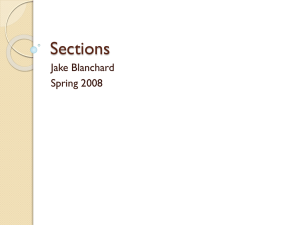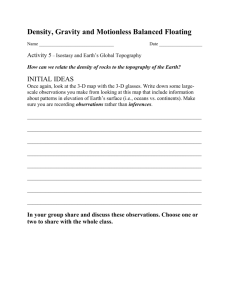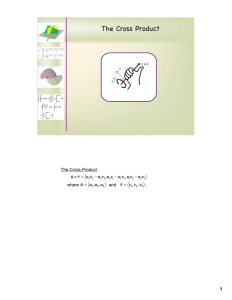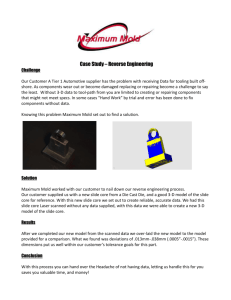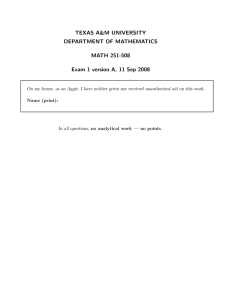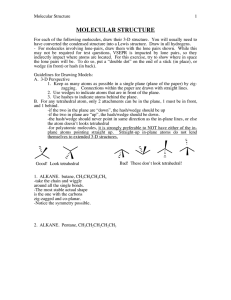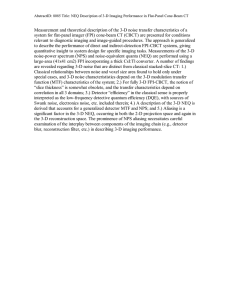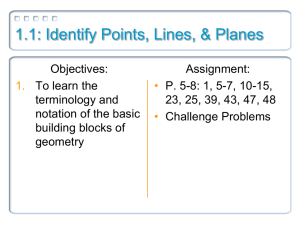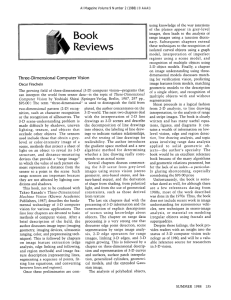Visualizing the Linear Programming Problems from 7.6 in 3-d.
advertisement
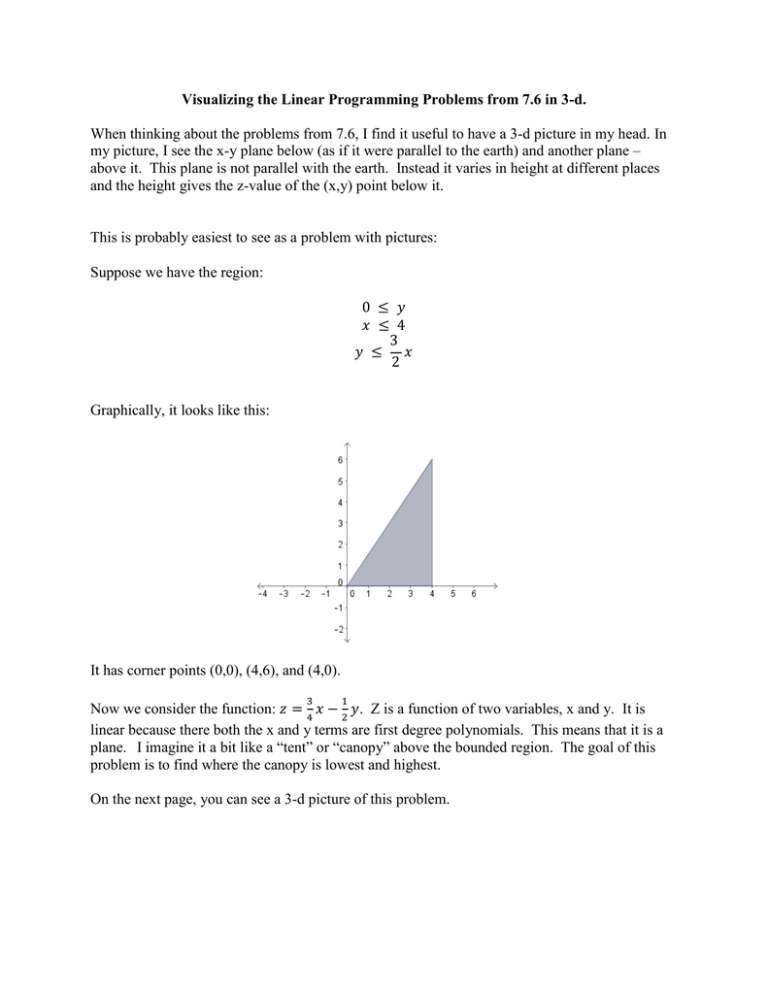
Visualizing the Linear Programming Problems from 7.6 in 3-d. When thinking about the problems from 7.6, I find it useful to have a 3-d picture in my head. In my picture, I see the x-y plane below (as if it were parallel to the earth) and another plane – above it. This plane is not parallel with the earth. Instead it varies in height at different places and the height gives the z-value of the (x,y) point below it. This is probably easiest to see as a problem with pictures: Suppose we have the region: Graphically, it looks like this: It has corner points (0,0), (4,6), and (4,0). Now we consider the function: . Z is a function of two variables, x and y. It is linear because there both the x and y terms are first degree polynomials. This means that it is a plane. I imagine it a bit like a “tent” or “canopy” above the bounded region. The goal of this problem is to find where the canopy is lowest and highest. On the next page, you can see a 3-d picture of this problem. This link lets you model linear programming problems in 3-d. It took me a few minutes to figure out how to change the equations, but once I got the hang of it, I really appreciated “seeing” the picture behind the problem. http://www.teacherlink.org/content/math/interactive/flash/linearprogramming/linearprogrammin g.html
